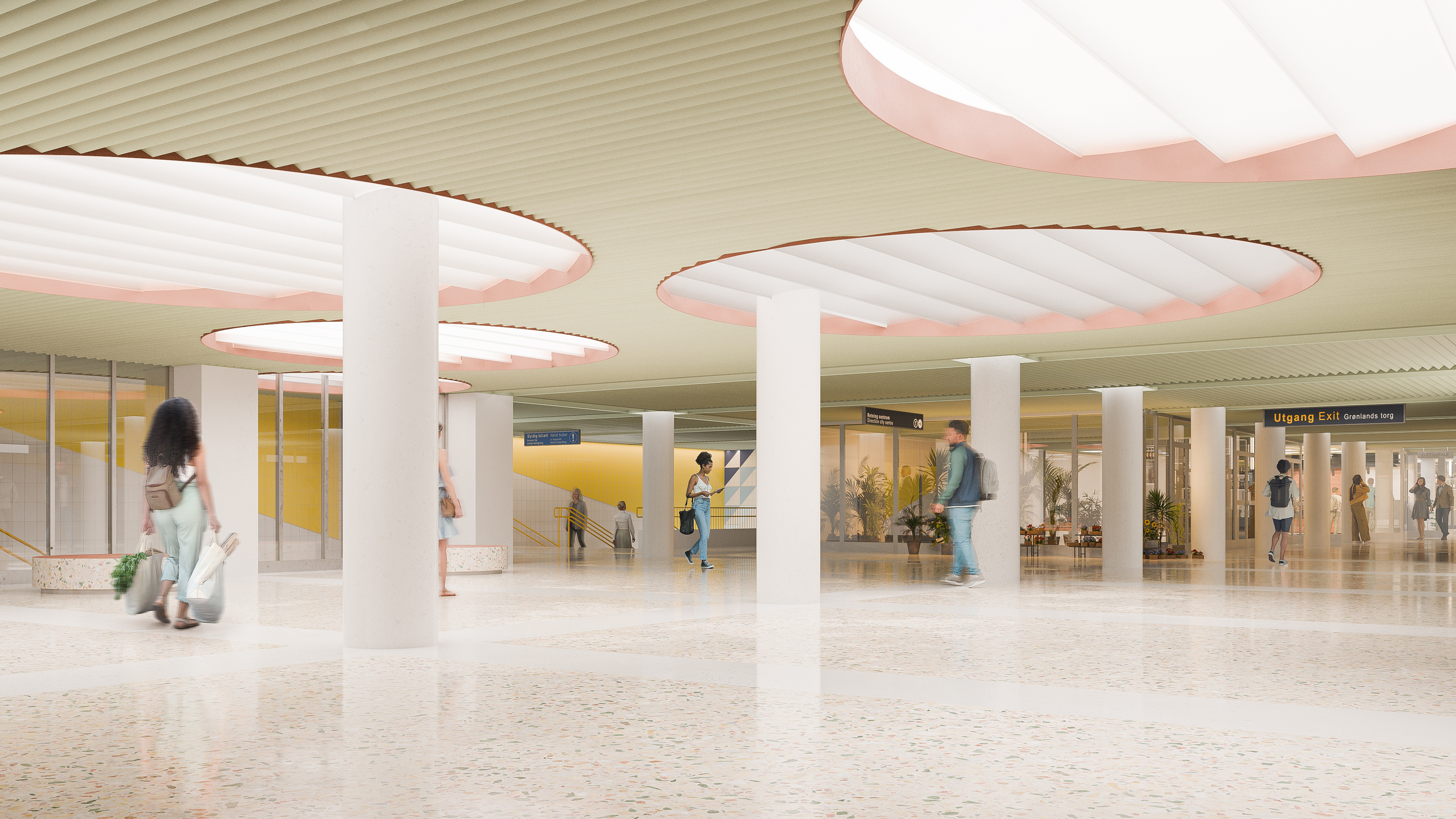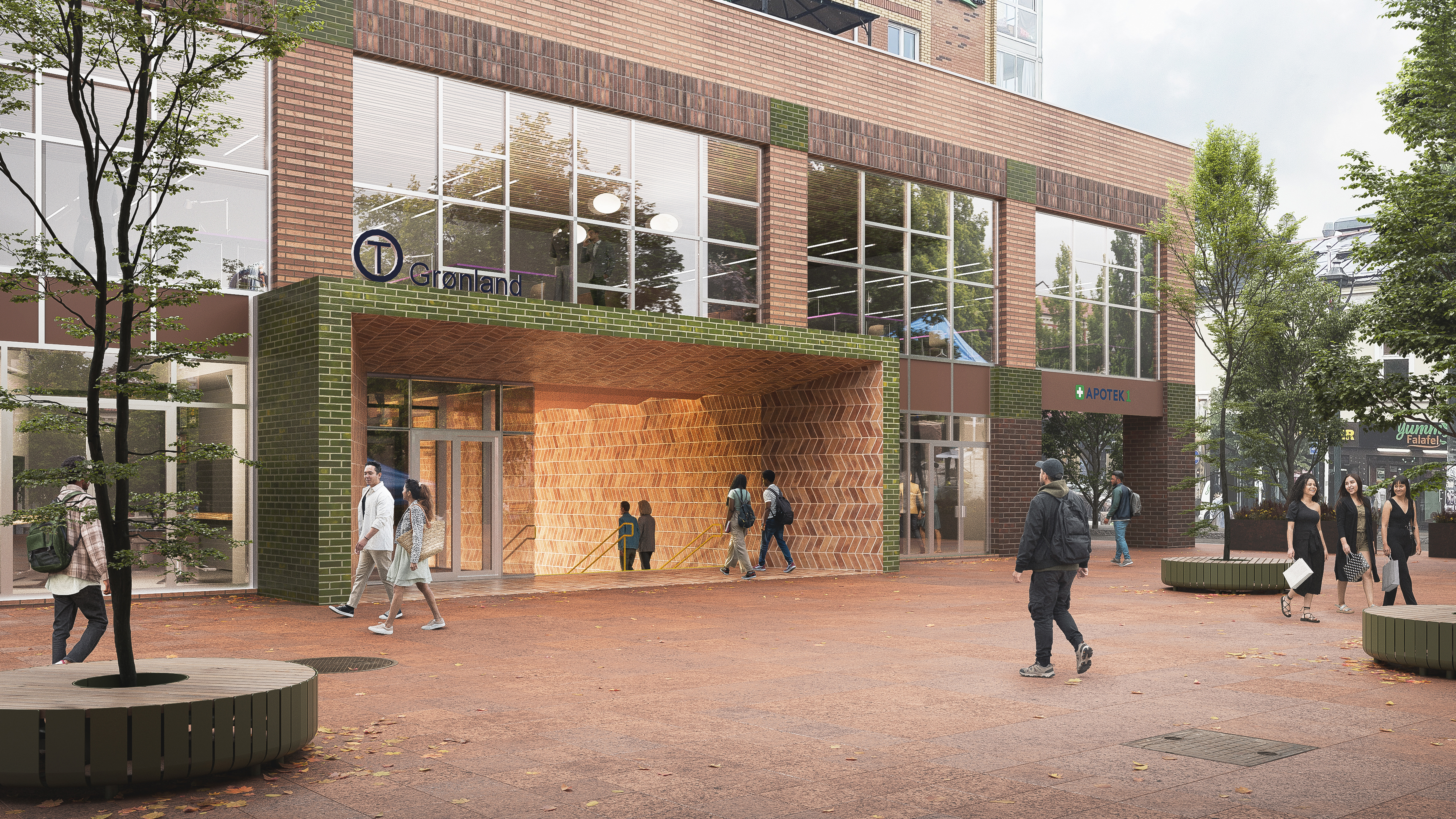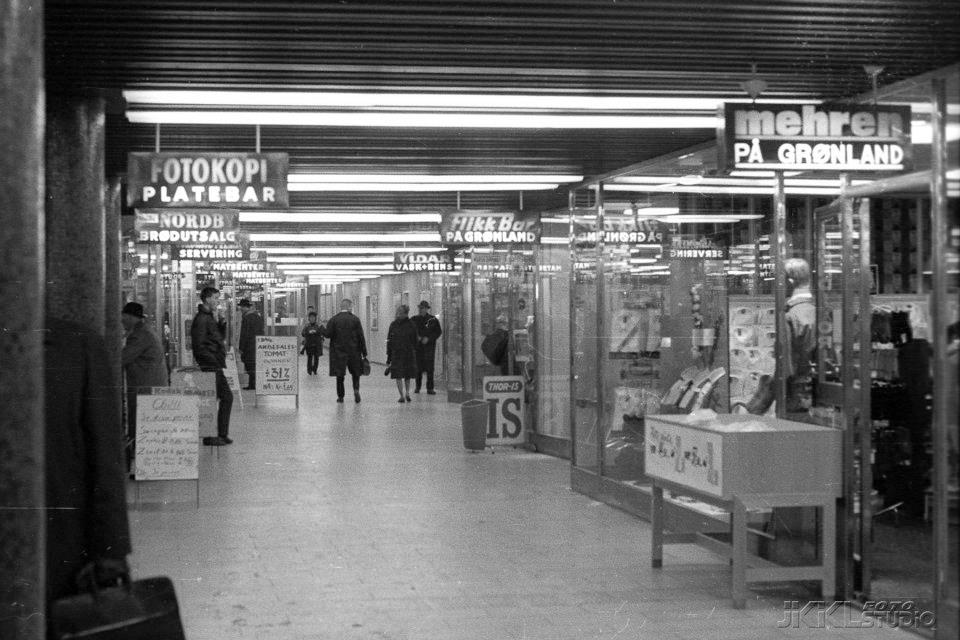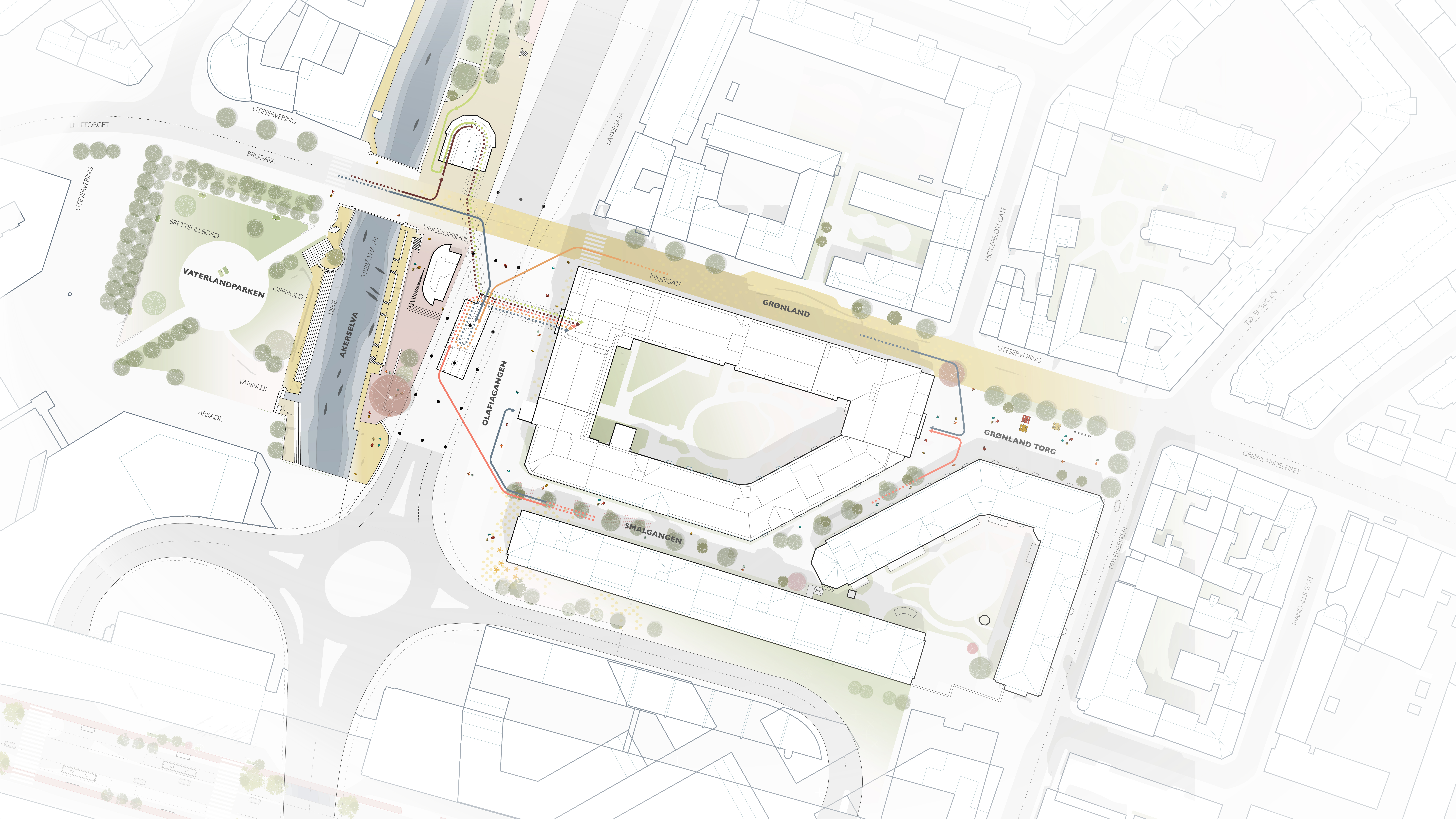


Grønland Metro Station
Grønland Metro Station
_
dato: 2024-
status: In Progress
type: Metro Station
klient: Sporveien & Ruter
koll.:
Grønland Station: A Central Meeting Point at a Defining Crossroads![]()
From Green Meadows to Urban Marketplace
The story of Grønland is one of continual transformation. Its name is believed to originate from the grassy meadows that once bordered the nearby shoreline. Over time, the area developed from a rural suburb of Christiania into a thriving urban center following its incorporation into the city in 1859.
The opening of the metro station in 1966 — featuring an integrated underground shopping arcade — reinforced Grønland’s role as a commercial and social hub.
This rehabilitation builds upon that legacy, aiming to revitalize the mezzanine shopping street and strengthen both physical and visual connections to Grønland Torg and the Akerselva River.
Grønland as a Bearer of Cultural Heritage
Grønland’s identity is defined by its rich tangible and intangible heritage. The material legacy is evident in the district’s diverse building stock — from classical brick façades and timber houses to notable landmarks such as Olympen, Asylet, Grønland Church, and Grønland Primary School.
The story of Grønland is one of continual transformation. Its name is believed to originate from the grassy meadows that once bordered the nearby shoreline. Over time, the area developed from a rural suburb of Christiania into a thriving urban center following its incorporation into the city in 1859.
The opening of the metro station in 1966 — featuring an integrated underground shopping arcade — reinforced Grønland’s role as a commercial and social hub.
This rehabilitation builds upon that legacy, aiming to revitalize the mezzanine shopping street and strengthen both physical and visual connections to Grønland Torg and the Akerselva River.
Grønland as a Bearer of Cultural Heritage
Grønland’s identity is defined by its rich tangible and intangible heritage. The material legacy is evident in the district’s diverse building stock — from classical brick façades and timber houses to notable landmarks such as Olympen, Asylet, Grønland Church, and Grønland Primary School.
Equally vital is the intangible heritage that makes Grønland one of Oslo’s most vibrant districts, characterized by international shops, cafés, restaurants, and religious gathering spaces.
The architectural expression of the station should reflect and reinforce this identity — drawing inspiration from the area’s palette, atmosphere, and history, while ensuring that no single cultural narrative dominates the design.



Urban Development with a sense of place

Like many central districts, Grønland is undergoing processes of gentrification, with rising housing prices and shifts in local commerce. A comprehensive upgrade of the metro station will enhance the area’s attractiveness, but may also intensify property pressures and risk the displacement of less affluent residents — particularly those already facing socioeconomic challenges.
To counterbalance this, the architectural vision must align aspirations for improvement with principles of social sustainability and local inclusivity. An overly exclusive approach risks alienating the very communities that define the area’s identity.
The design therefore seeks to promote inclusion over displacement — through open, non-commercial meeting spaces and robust, familiar materials. The ambition is to preserve Grønland’s diversity and distinctive character by embracing variation rather than uniformity.
Color and Materiality
Grønland’s visual identity is rooted in its architectural diversity, strong color traditions, and the use of enduring materials such as brick and wood. The district’s buildings range from traditional timber structures to modern developments, each contributing to a layered urban fabric.

